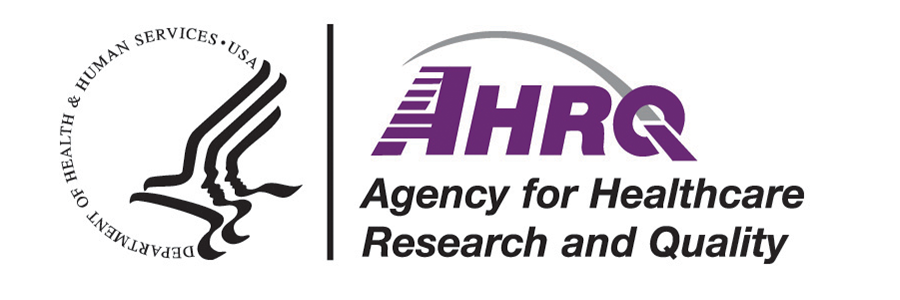SCCM seeks to improve the quality of care through the development and distribution of clinical practice guidelines, as well as by working with groups of ICU providers on specific collaborative projects to improve patient outcomes.
Quality improvement Guidelines
Since 2012, SCCM has taken the lead on development of Clinical Practice Guidelines for both adult and pediatric critical care medicine. Our guidelines are easily accessible to the full critical care team via both the website and an app. SCCM has 19 Clinical Practice Guidelines with 12 guidelines in the development process.
Newly Released Guidelines:
- Surviving Sepsis Campaign International Guidelines for the Management of Septic Shock and Sepsis-Associated Organ Dysfunction in Children
- Prevention and Management of Pain, Agitation/Sedation, Delirium, Immobility and Sleep Disruption (PADIS) in Adult Patients in the ICU
- Diagnosis and Management of CIRCI in Critically Ill Patients Part II

Looking Ahead
Among the guidelines in development are:
- Adult Surviving Sepsis Campaign Guidelines for Sepsis and Septic Shock
- Guidelines for Monitoring and Management of Pain, Sedation, Delirium, Neuromuscular Blockade and Withdrawal in Critically Ill Infants and Children with Consideration of Early Mobility and Sleep
- Guidelines for evaluation of new fever in critically ill adult patients: 2008 update
- Guidelines for the Management of Adult Acute and Acute‐on‐Chronic Liver Failure in the ICU: Neurologic, Infectious Diseases, Peri‐transplant, Other (Nutrition and Prophylaxis) Considerations
- Guidelines for Stress Ulcer Prophylaxis in Adult Critically Ill Patients
- Rapid Sequence Intubation Guideline, Adult
- Guidelines on glycemic control on critically ill children and adults (formerly Insulin Infusion)
- Inter hospital transport of critically ill patients guidelines (update to the 2004 guideline)
- Recognizing Critical Illness Outside the ICU (formerly Failure to Rescue)

“As a result of ABCDEF Bundle-related interventions, patients in our ICU are now more awake, more alert, more often pain free, and more interactive with families and providers. As a result, they are more able to actively participate in their care and get better faster. Families are also more engaged with their ICU teams and their loved ones and they are playing a more proactive role in helping providers deliver care to patients.”

“The ICU Liberation Campaign has demonstrated in a very compelling way that a broad variety of very important ICU outcomes, including length of stay, duration of mechanical ventilation, restraint use, delirium prevalence, drug-induced comas, and mortality, all of those outcomes showed a clear benefit when the ABCDEF bundle was applied. … Equally important, once patients leave the ICU and leave the hospital they’re less likely to be discharged to a skilled nursing facility or rehab center and they’re more likely to go home.”
Quality Collaboratives
SCCM’s learning Collaboratives bring together groups of ICU providers on specific projects to improve patient outcomes using our unique, trusted model for helping teams implement quality improvements.
Completed Collaborative Cohorts
Surviving Sepsis Campaign Bundle Implementation
Surviving Sepsis Campaign Sepsis on the Wards
Adventist Health System Sepsis Wards
ICU Liberation ABCDEF Bundle
PCOR-ICU Patient Centered Outcomes
THRIVE Collaborative
Post ICU Clinic Collaborative
Peer Support Group for Post Intensive Care Syndrome Collaborative
63 hospitals
60 hospitals
10 hospitals
77 hospitals
60 hospitals
10 hospitals
21 sites
26 sites

ICU Liberation Initiative and Quality Collaborative
SCCM’s ICU Liberation initiative focuses on liberating patients from the harmful effects of pain, agitation/sedation, delirium, immobility, and sleep disruption (PADIS) in the ICU. The ICU Liberation initiative aims to help ICU teams implement the PADIS Guidelines and the accompanying ICU Liberation Bundle (formerly referred to A-F) to provide better outcomes for patients during and after their ICU stay.
After launching the ICU Liberation initiative, SCCM established the ICU Liberation Collaborative, with the goal of promoting the widespread adoption of the guideline and the ICU Liberation Bundle through a train-the-trainer model. Over the course of a 20-month period, participating sites implemented the individual elements of the ICU Liberation Bundle, and submitted data on a monthly basis to track compliance and performance with the bundle. The Collaborative offered in-person meetings to discuss data collection, data reporting and successful implementation strategies. Monthly interprofessional virtual learning groups met to share successes, opportunities for improvements, and barriers. Participating ICUs submitted data on more than 15,000 patients.
Grant Funding:
$769,000 from the Gordon & Betty Moore Foundation
Published Literature
Caring for Critically Ill Patients with the ABCDEF Bundle: Results of the ICU Liberation Collaborative in Over 15,000 Adults Pun et al. Crit Care Med. 2019;47:3-14
Published literature validates that the ABCDEF bundle is associated with lower likelihood of hospital death, next-day mechanical ventilation, physical restraint use, ICU readmission, and discharge to a location other than home. Cost savings and harm reduction are primary findings.

Looking Ahead
SCCM is working to extend the value and reach of the ICU Liberation initiative:
- A Licensed Program to be released in 2020
- Pediatric-specific content
- An ICU Liberation App
For more information on this initiative visit iculibertion.org.
Patient-Centered Outcomes Research (PCOR-ICU) Collaborative
The Patient-Centered Outcomes Research Institute (PCORI) is an independent, nonprofit organization authorized by Congress in 2010. Its mission is to fund research that will provide patients, their caregivers, and clinicians with the evidence-based information needed to make better-informed healthcare decisions. PCORI is committed to continually seeking input from a broad range of stakeholders to guide its work.
ICU teams participated in the PCOR-ICU Collaborative: This program was funded through a Patient-Centered Outcomes Research Institute (PCORI) Eugene Washington PCORI Engagement Award (2626-SCCM).
The PCOR-ICU Collaborative aimed to Improve Care for Critically Ill Patients and Families Through Research Dissemination and Implementation. Each of the participating 60 hospitals chose a project and shared their data, as well as successes and challenges along the way, providing a network of support throughout the 10-month span of the collaborative.
Funds:
$250,000 from PCORI
Participating Teams:
60
Top Project Topics:
Patient/Family Advisory Groups
Family Care Conferences
Patient and Family Diaries
Open Visitation Programs
Creating Patient and Family Resources
Patient and Family Rounding
Significant Accomplishments:
The PCORI-ICU Collaborative will be publishing the results of its work, outlining its success in improving patient and satisfaction.

“Part of the value gained by participating in the PICOR Collaborative comes from sharing what works and what doesn’t with other Centers trying to determine which initiatives will have the most impact related to improvements in care. Equally important is knowing that other people who are just as committed as we are to family-centered care are facing the same struggles and barriers. I appreciate the camaraderie of the Collaborative and being able to cheer each other on.”

Central Line and Urinary Catheter Hospital-Acquired Infections
In collaboration with the Agency for Healthcare Research and Quality (AHRQ) and the American Hospital Association’s Hospital Research and Educational Trust (HRET), SCCM continues its work on the reduction/elimination of central line-associated blood stream infections (CLABSI) and catheter-associated urinary tract infections (CAUTI). Because these infections can cause long term harm and life-threatening conditions such as sepsis, SCCM serves on the national project team. SCCM member subject matter experts in CAUTI/CLABSI reduction conduct online coaching and site visits to provide assessment on how to improve techniques, integrate teamwork, and activate key safety precautions to prevent occurrence. Virtual shared learning is also an important component of this work. This national ICU quality improvement collaborative is funded and guided by the AHRQ and led by HRET. Learnings from these activities are presented in many ways including at the SCCM Congress and throughout SCCM communications to increase awareness.

Surviving Sepsis Campaign
SCCM continued to collaborate with the European Society of Intensive Care Medicine (ESICM) on the Surviving Sepsis Campaign in its commitment to reducing mortality and morbidity from sepsis and septic shock worldwide.
The Surviving Sepsis Campaign (SSC) released its first evidence-based guidelines for the pediatric patient population. “Surviving Sepsis Campaign International Guidelines for the Management of Septic Shock and Sepsis-Associated Organ Dysfunction in Children. The guidelines provide comprehensive recommendations for sepsis management in children following the GRADE methodology, which notes the quality of evidence and strength of the recommendation. Related resources developed by SCCM include the Initial Resuscitation Algorithm for Children.
Other significant papers include:
Surviving Sepsis Campaign Research Priorities for Sepsis and Septic Shock
Co-published in Critical Care Medicine and Intensive Care Medicine, the paper detailed findings from an international research committee revealing the top six clinical priorities for sepsis research. Presentation of the findings was offered at the ESICM meeting in Paris and SCCM’s annual Congress.
A capstone paper published in Critical Care Medicine on the Society’s sepsis in resource limited nations study conducted in Gitwe, Rwanda.

Looking Ahead
Sepsis Prevention
Sepsis is a life-threatening condition that often goes unrecognized or is diagnosed too late. Bringing sepsis education and training to the forefront can help save lives. SCCM offers opportunities to support the Surviving Sepsis Campaign’s efforts through donation, sponsorship and grants, which are especially important as it expands its efforts in resource-limited areas and brings more focus to the pediatric patient population. Learn more at SurvivingSepsis.org.

HOW YOU CAN SUPPORT OUR MISSION
Grants & Funding
Over the past five years, the Society has received over $2 million in grant support from private foundations and government agencies to support initiatives such as ICU Liberation, Surviving Sepsis Campaign, and Patient and Family Care. The Society has an approved indirect cost rate of 36% from the Department of Health and Human Services which is used to substantiate claims for indirect costs under grants and contracts awarded by the federal government, government agencies, and private foundations. Funding allows ICUs of all types to participate particularly those where hospital financial support may not be possible.
Sponsorship opportunities are available to fund the distribution of toolkits and educational materials.
Be a part of SCCM’s commitment and proven track record related to quality improvement. Learn more about partnering with SCCM by contacting grants@sccm.org.
WHY IT MATTERS
Quality is a moving target that requires a continuous cycle of evaluation and refinement as well as teamwork. SCCM’s ongoing quality initiatives directly impact quality of care for critical care patients before, during and after their time in the ICU.
